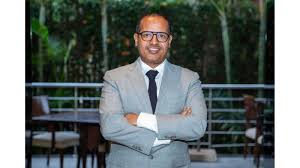Old age is often seen as a time to rest, relax, and enjoy the fruits of years of hard work. But for 78-year-old Regina Kuwulira, life has taken a different path. Every day, she gets on her motorcycle and rides passengers around town as a boda boda rider—a job mostly done by much younger men.
Regina’s story is one of strength and survival. She not only works to support herself but also takes care of her 100-year-old mother, who lives with her. Despite their age, neither of them receives the monthly government stipends meant for older persons.
“I do this job because I have no choice. If I don’t work, we don’t eat,” Regina says with a smile, even though her life is far from easy.
Wearing a faded jacket and helmet, Regina rides confidently through the streets, navigating traffic like someone half her age. Her motorcycle may be old, but it is her lifeline.
She has been in the boda boda business for several years now. The money she makes is modest—just enough to cover food, medicine, and a few basic needs. Yet, Regina does not complain.
“It is not much, but it helps us survive,” she says.
Uganda’s Social Assistance Grants for Empowerment (SAGE) program is designed to provide monthly financial support to senior citizens aged 80 and above. However, many elderly people like Regina have either been left out or have never been registered.
“We hear about the money, but no one has ever come to ask for our names or give us anything,” Regina explains.
This lack of access to social protection leaves many elderly Ugandans vulnerable, especially women who often lack savings or formal pensions after a lifetime of informal work or caregiving.
What drives Regina is not just survival—it is love. She shares a small, single-room home with her mother, whom she bathes, feeds, and cares for daily. Though she is frail, her mother is still mentally alert and grateful for her daughter’s sacrifice.
“She’s all I have,” Regina says. “If I don’t look after her, who will?”
Despite her situation, Regina remains hopeful that one day, support will come.
Regina’s story is not unique. Across Uganda, many elderly people are forced to keep working in harsh conditions, simply to stay alive. With a rapidly growing older population, experts are calling for better systems to identify, register, and support elderly citizens.
Community leaders in Regina’s area say they are aware of her case but that the government’s assistance program is often slowed by lack of documentation, poor data collection, and limited outreach to remote or informal communities.
As Uganda reflects on its future, stories like Regina’s highlight the urgent need to protect the dignity of older persons, especially those who spent their lives contributing to their families and society.
“I may be old,” Regina says, “but as long as I have strength, I’ll keep riding.”



